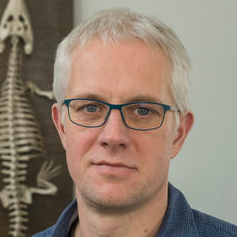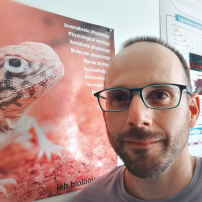Current Approaches in Ecophysiology
Natural environment is under the influence of constant changes caused by natural processes or resulting of human activities. Thus, it is a challenge of modern human to protect surrounding environment with exploit its natural resources in a clever way, and at the same time keep the delicate balance of ecosystems functioning. Environmental changes evoked among others by harmful exploitation by human, for example, the usage of a large amount of synthetic pesticides in food production, emission of greenhouse gases or destruction of natural habitats lead to environment pollution and reduction of diversity. Nowadays, many scientists' efforts focus on searching for solutions limiting negative human impact on the biosphere using tools invented by nature. A good example are green pesticides, which are pesticides derived from organic sources and are considered environmentally friendly, causing less harm to human and animal health and the ecosystems. One of the most environmentally friendly biopesticides are plant or microorganismal-derived substances. What more, their potential could be also applied in creating of new pharmaceuticals used e.g., in cancer therapy. Due to the severity of the problem, either the impact of environmental pollution and/or climate changes on living organisms is the focus of attention of many researches in the world. Mechanisms of their adaptations are carefully analysed on different levels: cellular, organismal and population. Thus, in the proposed lectures we would like to rise two aspects: 1) animal adaptation in the face of a climate and environment changes, on the example of model organisms and, 2) the usage of natural substances of plant, insect, and microorganism origin in crop protection, regulation of pests and disease treatment. We invite scientists, which are specialists in the field, who present contemporary treats for human and other beings, paying attention to the enormous wealth of nature that we can skilfully use for health care and treatment of many diseases.
Pharmaceiticals from plants and microorganisms?

Sabino Aurelio Bufo
The scientific career of Professor Sabino Aurelio Bufo is associated with two Italian universities: the University of Bari and the University of Basilicata. He also worked as a researcher at ENIRICERCHE (formerly ASSORENI), the Association among Companies of ENI Industrial Group (National Petroleum Company - Holding) for Research Development and Planning (1982-1984) and served as a president of GRIFA - The Italian Research Group on Pesticides, Pollutants and Environment. He is a member of many research societies, like the American Society of Agronomy, the International Soil Science Society, the Mediterranean Group of Pesticide Research, European and Mediterranean Association for Environmental Education, Assessment and Protection, among others. His research interest focuses on soil chemistry, soil–water remediation, pesticide chemistry and biochemistry, the chemistry of natural substances in vegetables and soil, pharmaceuticals from plants and microorganisms, the fate of xenobiotics in the environment, environmental photochemistry, and mass spectrometry. Prof. Bufo collaborates with many universities and research institutes in Italy and abroad: Egypt, France, Germany, Greece, Israel, Morocco, Palestine, Poland (AMU), South Africa, Spain, Turkey. The scientific collaboration between his group and the Faculty of Biology UAM resulted in more than 20 common scientific papers, 2 fellowships of Italian students at our faculty (dr. Emanuella Ventrella, co-tutor prof. AMU dr hab. Zbigniew Adamski, and dr. Matteo Santacrocce, co-supervisor dr. Jakub Baranek), and several visits within the Erasmus program. Prof. Bufo published more than 400 publications and his h-index is calculated as 26-30.
Towards identification of novel neuropeptides as potent green pesticides
Reinhard Predel
Prof. Reinhard Predel is and neurobiologist and animal physiologist who is interested in the evolution of peptidergic signalling systems; the emphasis is on neuropeptides from the nervous system of invertebrates. His team is a world leader on the development and utilization of methods for mass spectrometric-based peptide profiling in identified neurons in insects and the analysis of dynamics of cell-to-cell communication. He did his PhD at Friedrich Schiller University of Jena and since several years he leads a group at the Institute of Zoology, University of Cologne. His lab currently works on the following topics: evolution of neuroendocrine systems in insects, development of mass spectrometry-based methods for the analytical detection of peptide hormones, evolution of venom in arthropods. Prof Predel is an author or co-author of more than a hundred scientific papers including prestigious Nature and Cell and was awarded with several research projects such as recent EU Horizon 2020 nEUROSTRESSPEP project.
Antimicrobial peptides: Application informed by evolution

Jens Rolff
Prof. Jens Rolff is an immunologist currently focused mostly on understanding the evolution of long-lasting immune function in insects, including evolution of bacterial resistance against antimicrobials. Moreover, the scope of research conducted by Prof. Rolff concerns ecological immunology of insects and evolution of sexual dimorphism and metamorphosis. From 2012, Prof. Rolff is a head of Evolutionary Group at Institute of Biology – Zoology, Freie Universität Berlin, one of the leaders in researches concerning molecular basis of insect immune system functioning. Prof. Rolff is author and co-authors around one hundred articles, included research published in prestigious journals like Science, PNAS or Biological Reviews. Moreover, Prof. Rolff has been a principal investigator of projects funding from the European Research Council (ERC).
One hundred years of phase polymorphism research in insects

Guy Smagghe
Professor at the Department of Crop Protection at Ghent University in Belgium. He received his PhD in 1995, and then he was postdoc fellow in Belgium, Switzerland, USA and Spain. To date he has a Research Professor position and he is leading a research group in fundamental and applied aspects in insect sciences.I n his multidisciplinary research he combines physiology and modern techniques in biotechnology as RNAi to better understand the mechanisms how insect live, develop and survive. One of his intriguing themes is insect metamorphosis that is triggered by the insect molting hormone ecdysone. In his lab, he is using different pest insects as caterpillars, beetles and aphids, and also beneficial insects as bumblebees. This wide pallet of insects allows to study basic and applied themes with homo- versus hemimetabolous insects, arthropod-plant interactions, insect-microbe interactions, novel insect-specific targets for insect pest control, and sustainable IPM systems. Prof. Smagghe has about 230 papers published in international journals with peer-reviewing, 17 book chapters and 2 books. He has given more than 40 invited lectures in many different countries and has more than 300 presentations in international meetings.
Botanical tools in plant protection. A case study: Nematicides

Nikoletta Ntalii
Nikoletta Ntallis research activity has resulted in 45 publications in international SCI journals, 5 chapters in books. Her scientific interests are related to the discovery of low-risk botanical active ingredients of interest to be developed into plant protection products, the study of the combined use of herbal plant protection tools with chemically synthesized formulates as well as other plant protection techniques in the context of integrated pest management programs. She is also interested in the evaluation of bioactivity of "basic substances" originating in edible natural matrixes with plant protection and/or biocidal properties and development of extraction techniques of bioactive molecules and the instrumental analysis for the chemical composition. Moreover, her studies concern the risk assessment of pesticidal tools in agro-ecosystems, the ecotoxicological behaviour, the efficacy in vitro and under field conditions and the interactions of pesticidal natural compounds with host plant defence mechanisms. Dr Nikoletta Ntalii is the Member of the American Chemical Society and Mediterranean Group of Pesticide Research
Cold tolerance of arthropods: a complex and multifaceted flexible trait

Hervé Colinet
Dr Hervé Colinet focuses on adaptive responses of ectotherms to environmental and anthropic constraints. To do so, he applies various approaches ranging from ecophysiology to evolutionary and molecular biology with aims of reaching an integrated understanding of stress adaptations at different organization levels, from genes to individual responses. He is a world-renowned specialist in an arthropod thermal biology. Has been a PI of 14 national and international projects and author of over 70 publications (h-index = 27, citations = 2515). Currently, he is leading a research line about the cold tolerance of the Drosophila suzukii, a destructive fruit crop pest native to Southeast Asia, which recently invaded Europe, North America and South America.